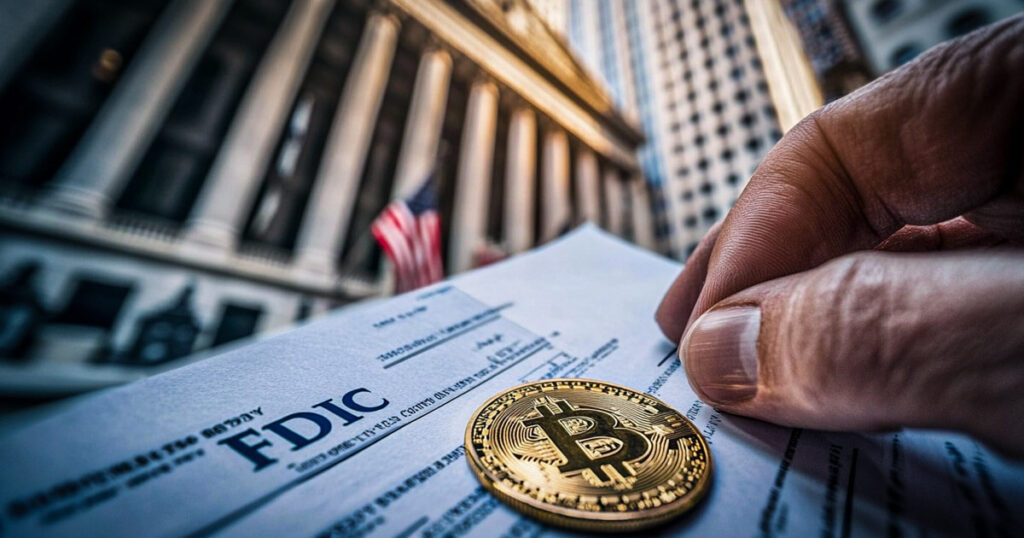The Federal Deposit Insurance Corporation (FDIC) recently made a significant policy shift by issuing new guidance that allows FDIC-supervised banks to engage in crypto-related activities without prior approval, as long as they manage associated risks by safety and soundness standards. This announcement, detailed in the Financial Institution Letter (FIL-7-2025), marks a departure from the agency’s previous approach and sets the stage for a new era of innovation in the banking sector.
Acting Chairman Travis Hill expressed optimism about the new guidance, stating, “With today’s action, the FDIC is turning the page on the flawed approach of the past three years. I expect this to be one of several steps the FDIC will take to lay out a new approach for how banks can engage in crypto- and blockchain-related activities in accordance with safety and soundness standards.”
This decision represents a collaborative effort between the FDIC and the President’s Working Group on Financial Markets, with the goal of issuing additional guidance and coordinating with other regulatory agencies to replace outdated interagency documents on digital assets. Bo Hines, the Executive Director of the Presidential Working Group on Digital Assets Markets, hailed the decision as a “huge step forward toward innovation and adoption.”
In recent years, some banks exploring digital asset activities received informal “pause” letters instructing them to halt engagement with crypto services, leading to speculation about hindering the industry’s growth. Hill criticized these actions for lacking transparency and contributing to a perception that the FDIC discouraged innovation through non-public enforcement tactics.
As part of the effort to reset its approach to financial innovation, the FDIC is reevaluating its compliance with the Bank Secrecy Act and exploring ways to allow banks to pursue tokenized deposit services and other blockchain-based financial infrastructure without unnecessary regulatory delays. This move brings the FDIC in line with other regulators, such as the US Securities and Exchange Commission (SEC), which is formalizing crypto regulatory frameworks.
Industry participants and lawmakers have been calling for banking regulators to provide a consistent and transparent roadmap for lawful crypto-related services. The FDIC’s new guidance signals a willingness to embrace innovation and adapt to the changing landscape of the financial industry.

